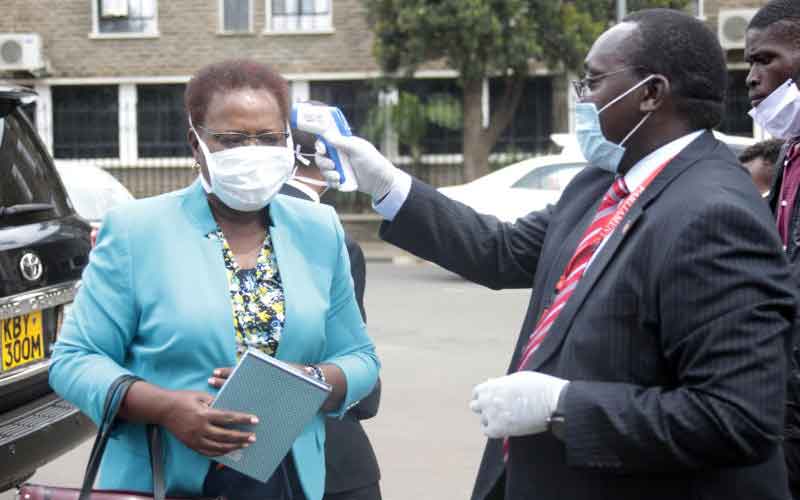×
The Standard e-Paper
Fearless, Trusted News

Kandara MP Alice Wahome gets her temperature taken as she arrives for a special sitting in Parliament on Tuesday. With Covid-19 disrupting legislators’ calendar and travel plans, the Treasury has slashed their allowances under a revised spending plan. [Boniface Okendo, Standard]
Members of Parliament have become the biggest casualties in changes to the government’s spending plans, losing Sh2.5 billion from their allowances and travel kitties.